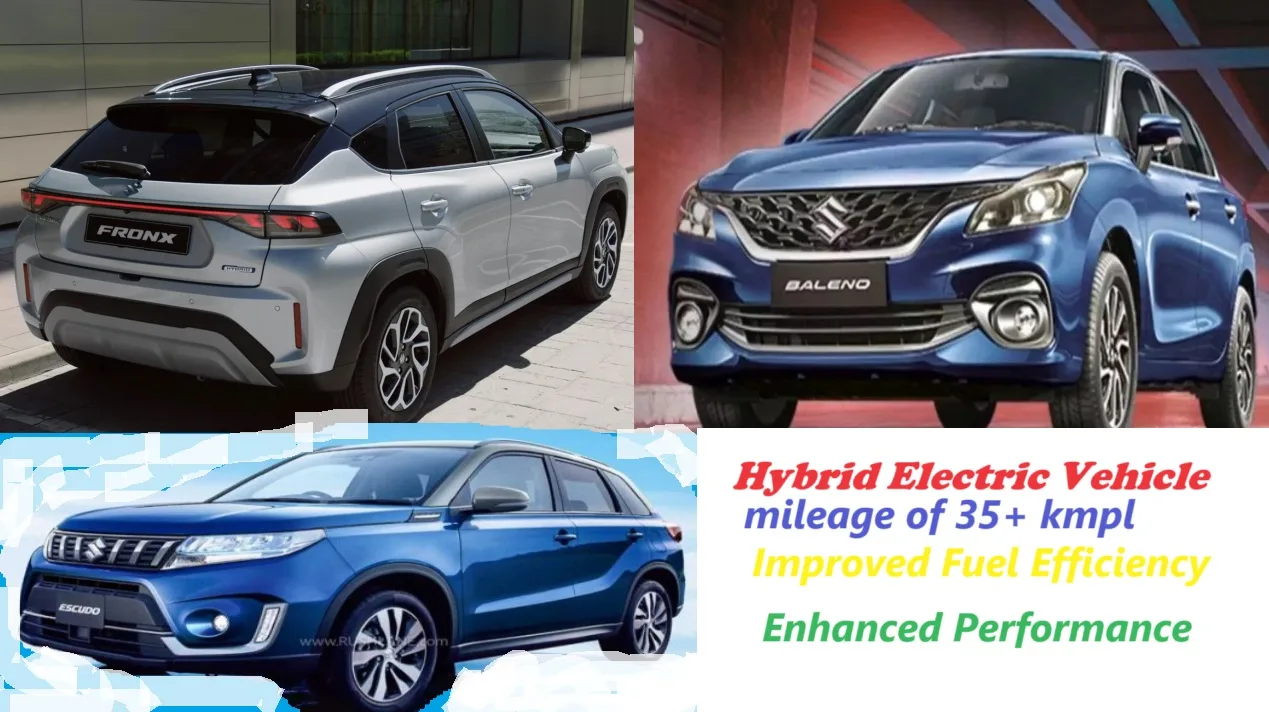Maruti Suzuki, the leading car manufacturer in India, has confirmed its plans to introduce hybrid variants of popular models such as the Fronx Facelift, Next Gen Baleno, and Next Gen Swift. These upcoming cars are set to revolutionize the market with their impressive mileage of 35+ kmpl, allaying concerns about range anxiety commonly associated with electric vehicles.
The Hybrid Electric Vehicle (HEV) System
The core of these hybrid cars will be the innovative HEV system. This system incorporates a battery-powered electric motor that directly propels the wheels, ensuring smooth and efficient performance. What sets Maruti’s approach apart is the seamless integration of an on-board generator, powered by the petrol engine, to recharge the battery. This intelligent setup eliminates the need for external charging stations, making these cars highly practical for Indian roads.
Advantages of Maruti’s Hybrid Cars
- Affordability: Maruti Suzuki aims to make these hybrid cars more accessible by pricing them competitively compared to other hybrids available in the market.
- Practicality: With no range anxiety, these cars offer a practical alternative to fully electric vehicles, providing a seamless driving experience without the worry of running out of charge.
- Improved Fuel Efficiency: The hybrid technology significantly enhances fuel efficiency, making each journey economical and environmentally friendly.
- Reduced Emissions: By relying more on electric power, these cars contribute to lower emissions, aligning with global sustainability goals.
- Enhanced Performance: The integration of electric power with traditional engines results in enhanced performance, delivering a dynamic driving experience.
Challenges and Considerations
While the benefits of hybrid cars are evident, there are certain challenges and considerations:
- Higher Initial Cost: The advanced technology and components in hybrid cars may lead to a slightly higher initial cost compared to conventional vehicles.
- Complexity: Hybrid systems involve intricate technology, requiring specialized knowledge for maintenance and repair.
- Spare Parts Availability: Ensuring a consistent supply of spare parts for hybrid cars is essential to maintain their performance and longevity.
- Consumer Awareness: Educating consumers about the benefits and functionality of hybrid cars is crucial for wider adoption and acceptance in the market.
In conclusion, Maruti Suzuki’s move towards hybrid semi-electric engines marks a significant step towards sustainable and efficient mobility in India. With a focus on affordability, practicality, and improved performance, these hybrid cars are poised to redefine the automotive landscape and offer consumers a compelling choice for their transportation needs.

